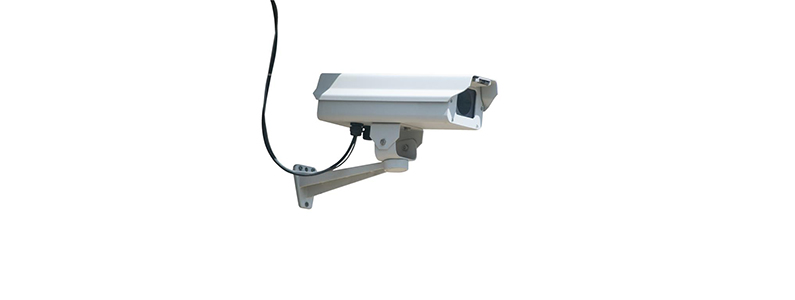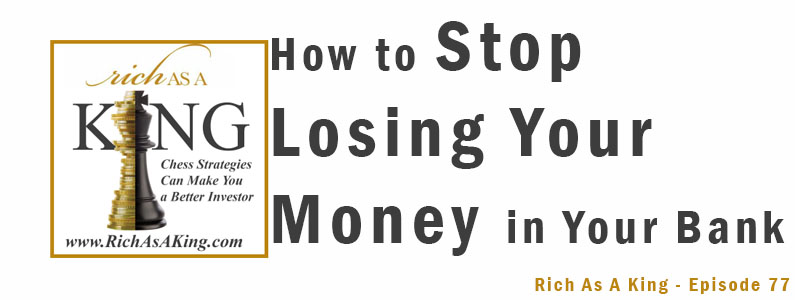
by Doug Goldstein CFP® | Oct 1, 2014 | Other, Strategic Thinking |
What to do if someone breaks into your email (This is an important article that explains what you need to do if someone gets access to your email or bank account. Please tweet it, put it on your Facebook and share it with your friends and family. It could save someone’s identity. Thanks!) After a perfectly normal exchange of emails with my office manager, a client sent us one more in the series asking for us to wire $49,950 to a lawyer in Singapore to complete the purchase of a property. That email red-flagged the account, and my eagle-eyed team leader called the client. “I didn’t send you a wire request,” the client replied. And then she paused. “Oh, man!” she realized, “my Gmail account has been hacked.” It happens all the time. You might be next. Or, if not, someone you know. So please pass this information on so everyone learns this basic self-defense. Like a chess player dealing with an unknown opponent, dealing with a hacker requires a carefully thought-out strategy, and then a series of tactics to make sure you don’t get checkmated by an evil cyber-criminal. The first half of this list contains strategies for avoiding getting hacked, and the second half of the list covers what to do after you’ve been attacked. Before you get hacked, set up a strategy to limit the damage. Carefully consider what information you keep online, what you store in the cloud, and with whom you share your log-in details. Strong passwords can protect you and your email. Choose a pattern that is easy for you to remember, but... Click for more

by Douglas Goldstein | Oct 27, 2015 | Other, Podcasts, Strategic Thinking |
What is identity theft? How can you prevent this modern type of technological crime happening to you? This financial podcast gives you a list of top tips to prevent online fraud and identity theft. To listen to this podcast, click here Or you can download the Rich As A King podcast from your favorite platforms: Itunes, Stitcher, TuneIn, and of course, our website. This podcast is based on Rich As A King: How to Become a Grandmaster of Investing, by Douglas Goldstein, CFP® and Grandmaster Susan... Click for more

by Doug Goldstein CFP® | May 12, 2016 | Financial Strategies |
Keeping your money in “safe” investments is not a guarantee against being a victim of financial fraud. Take these 3 steps to minimize the risk that you’ll be a target in a scheme. Create strong passwords Don’t base your financial passwords on family birthdays, names, addresses, or other well-known personal information. It’s easy for hackers to find this personal information and break into your account. Instead, create a strong password by using a random assortment of numbers, letters, and symbols that only you know. Having strong passwords is not enough to prevent financial fraud. You must protect your passwords, too. Don’t tell others your passwords in public, and while using the ATM machine, make sure you stand close by and cover your PIN number as you type it in. Also, make sure you have complicated security questions so no one else could enter your accounts and change passwords. Check account statements and credit ratings regularly It’s your responsibility to know what’s going on with your money. Check your account statement regularly, and compare it to previous months. Make sure the balance makes sense. If the balance doesn’t seem right, figure out what caused the difference. If you can’t find the reason, call your bank. Identity theft is also a big risk when it comes to credit ratings. Therefore, check your credit ratings at least once a year to make sure you (or other authorized users) are the only one with access to your card. (For more information how to get your credit report, click here.) Get bank alerts Banks provide an assortment of alert services such as sending an... Click for more

by Douglas Goldstein | Sep 21, 2015 | Podcasts |
Want to stop losing your money? Learn the basic rules for managing your bank account and keeping your funds safe. Listen to this financial podcast for tips on avoiding identity theft, sprucing up your credit rating, and staying on top of the activity in your account. To listen to this podcast, click below. This podcast is based on Rich As A King: How to Become a Grandmaster of Investing, by Douglas Goldstein, CFP® and Grandmaster Susan... Click for more

by Doug Goldstein CFP® | Jul 2, 2015 | Decision Making |
The internet is one of the most powerful inventions ever. Information is freely available, and you can get anything and everything you want. Yet, the internet can also be a dangerous place for investors. Here’s why: Online fraud As the internet becomes more sophisticated, so does online fraud. Emails offering you a great cash prize if you would just deposit $5,000 into a stranger’s bank account have been around for years and most people now know to avoid them. Since then, scammers have made their approach more plausible and convincing, and many innocent and intelligent investors have been fooled. From identity theft to real-sounding but false emails claiming to be from your bank, online scams go on every single day. To learn how to protect yourself from internet fraud, click here. Do they really know what they’re talking about? If you’re good at designing websites, you can make anything look appealing and interesting. But is what’s written on an attractive website always accurate? Many online commentators may sound as if they know what they’re talking about. But if you dig a little deeper, you’ll soon discover that they possess about as much financial knowledge as the taxi driver who’s just dying to tell you about a stock pick while you’re on the road. No matter how well designed this so-called financial pundit’s website is, if you follow his “advice” you will soon be heading towards financial disaster. Too much information The vast availability of knowledge on the internet is not always a good thing. There’s so much information that you can get totally overwhelmed. Even if what you read... Click for more









